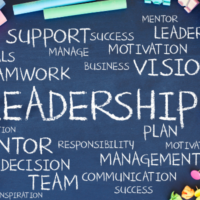In the realm of public health, donor agencies play a pivotal role in funding and supporting initiatives that aim to improve health outcomes across the globe. These organizations, which can be governmental, non-governmental, or private foundations, provide essential financial resources, technical assistance, and strategic guidance to various health programs. Their contributions are particularly crucial in low- and middle-income countries where health systems often struggle with limited resources and overwhelming challenges.
By investing in public health initiatives, donor agencies help to combat diseases, enhance healthcare infrastructure, and promote health equity. The landscape of public health funding is diverse and dynamic, with numerous donor agencies vying to make a significant impact. Understanding the motivations, priorities, and operational frameworks of these agencies is essential for NGOs seeking to secure funding for their projects.
This article will explore the criteria for ranking donor agencies, highlight the top five agencies that are making strides in public health, identify those with a focus on specific health issues, and discuss emerging players in the field. Additionally, we will examine the overall impact of these donor agencies on global public health initiatives.
Criteria for Ranking Donor Agencies
When evaluating donor agencies for public health initiatives, several criteria come into play. First and foremost is the agency’s funding capacity. This includes not only the total amount of funds available but also the consistency and reliability of funding over time.
Agencies that have a history of sustained financial support are often more attractive to NGOs looking for long-term partnerships. Another critical factor is the agency’s alignment with the specific goals and objectives of a public health initiative. Donor agencies often have particular areas of focus or strategic priorities that guide their funding decisions.
Therefore, understanding these priorities is essential for NGOs to tailor their proposals effectively. Additionally, the transparency and accountability of donor agencies are vital considerations. Agencies that maintain clear communication about their funding processes and outcomes tend to foster trust and collaboration with their partners.
Furthermore, the geographical focus of a donor agency can significantly influence its ranking. Some agencies prioritize funding in specific regions or countries, while others may have a more global approach. This geographical alignment can be crucial for NGOs operating in targeted areas.
Lastly, the agency’s reputation within the public health community can also serve as an indicator of its effectiveness and reliability as a partner.
Top 5 Donor Agencies for Public Health Initiatives
1. The Global Fund to Fight AIDS, Tuberculosis and Malaria: The Global Fund is a leading international financing organization dedicated to combating three of the world’s most devastating diseases. With a commitment to supporting countries in their efforts to achieve universal health coverage, the Global Fund has invested billions in programs that provide prevention, treatment, and care services.
Its innovative financing mechanisms and partnerships with governments and civil society organizations make it a top choice for NGOs focused on infectious diseases. 2. The Bill & Melinda Gates Foundation: Renowned for its substantial financial contributions to global health initiatives, the Gates Foundation focuses on reducing inequities in healthcare access.
The foundation prioritizes investments in vaccines, maternal and child health, and infectious diseases. Its data-driven approach and emphasis on measurable outcomes have made it a key player in shaping public health strategies worldwide. 3.
USAID (United States Agency for International Development): As one of the largest bilateral donors in global health, USAID supports a wide range of health initiatives across various sectors, including maternal and child health, infectious diseases, and nutrition. USAID’s commitment to evidence-based programming and its extensive network of partnerships enable it to effectively address complex public health challenges. 4.
The World Health Organization (WHO): As the directing and coordinating authority on international health within the United Nations system, WHO plays a crucial role in setting global health standards and providing technical assistance to countries. WHO’s funding mechanisms support various public health initiatives aimed at improving health systems and responding to emerging health threats. 5.
The Wellcome Trust: This global charitable foundation focuses on improving health through research and innovation. The Wellcome Trust funds projects that address pressing health challenges, including mental health, infectious diseases, and global health security. Its commitment to fostering collaboration between researchers and practitioners makes it an invaluable partner for NGOs seeking to implement evidence-based interventions.
Donor Agencies with a Focus on Specific Health Issues
While many donor agencies take a broad approach to public health funding, several organizations concentrate on specific health issues that require targeted interventions. For instance, the Gavi Alliance is dedicated to increasing access to immunization in low-income countries. By partnering with governments and other stakeholders, Gavi has successfully expanded vaccination coverage and reduced child mortality rates.
Another example is the Global Alliance for Improved Nutrition (GAIN), which focuses on addressing malnutrition through innovative solutions. GAIN works with various partners to implement programs that improve nutrition outcomes in vulnerable populations, particularly women and children. Their targeted approach has led to significant improvements in dietary diversity and food security in several regions.
The International Diabetes Federation (IDF) is another agency that zeroes in on a specific health issue—diabetes. IDF advocates for better access to diabetes care and education while supporting research initiatives aimed at understanding the disease’s impact globally. Their targeted funding helps NGOs develop programs that address diabetes prevention and management effectively.
Additionally, organizations like the Global Fund for Women focus on women’s health issues specifically. By funding initiatives that empower women and girls through education and healthcare access, they contribute significantly to improving overall public health outcomes.
Emerging Donor Agencies in Public Health Initiatives
As global public health challenges evolve, new donor agencies are emerging to address these issues with innovative approaches. One such agency is the Wellcome Trust’s new initiative focused on mental health research funding. Recognizing the growing mental health crisis exacerbated by factors such as the COVID-19 pandemic, this initiative aims to support groundbreaking research that can lead to effective interventions.
Another emerging player is the Chan Zuckerberg Initiative (CZI), which has made significant investments in public health research and technology. CZI’s focus on leveraging data science and technology to tackle complex health challenges positions it as a forward-thinking agency in the public health landscape. The Global Financing Facility (GFF) is also gaining traction as an emerging donor agency dedicated to improving reproductive, maternal, newborn, child, and adolescent health.
By mobilizing resources from various stakeholders—including governments, private sector partners, and civil society—the GFF aims to ensure that every woman and child has access to quality healthcare services. These emerging agencies are not only providing financial support but also fostering collaboration among diverse stakeholders to create sustainable solutions for pressing public health issues.
Impact of Donor Agencies on Global Public Health
Setting Standards for Best Practices
Donor agencies also set standards for best practices in program implementation and evaluation, promoting evidence-based approaches and encouraging collaboration among stakeholders. This helps build capacity within local communities and strengthens healthcare systems, ensuring that public health initiatives are sustainable in the long run.
Advocacy and Awareness
Furthermore, donor agencies contribute significantly to global advocacy efforts, raising awareness about pressing public health issues and amplifying the voices of marginalized communities. Their support ensures that the needs of these communities are prioritized in policy discussions at national and international levels.
Collaboration for Sustainable Impact
In conclusion, donor agencies are essential partners in advancing global public health initiatives. By understanding their priorities and aligning with their goals, NGOs can secure vital funding to make a meaningful impact on the communities they serve. As new challenges arise in the field of public health, continued collaboration between donor agencies and NGOs will be crucial for achieving sustainable improvements in health outcomes worldwide.









































